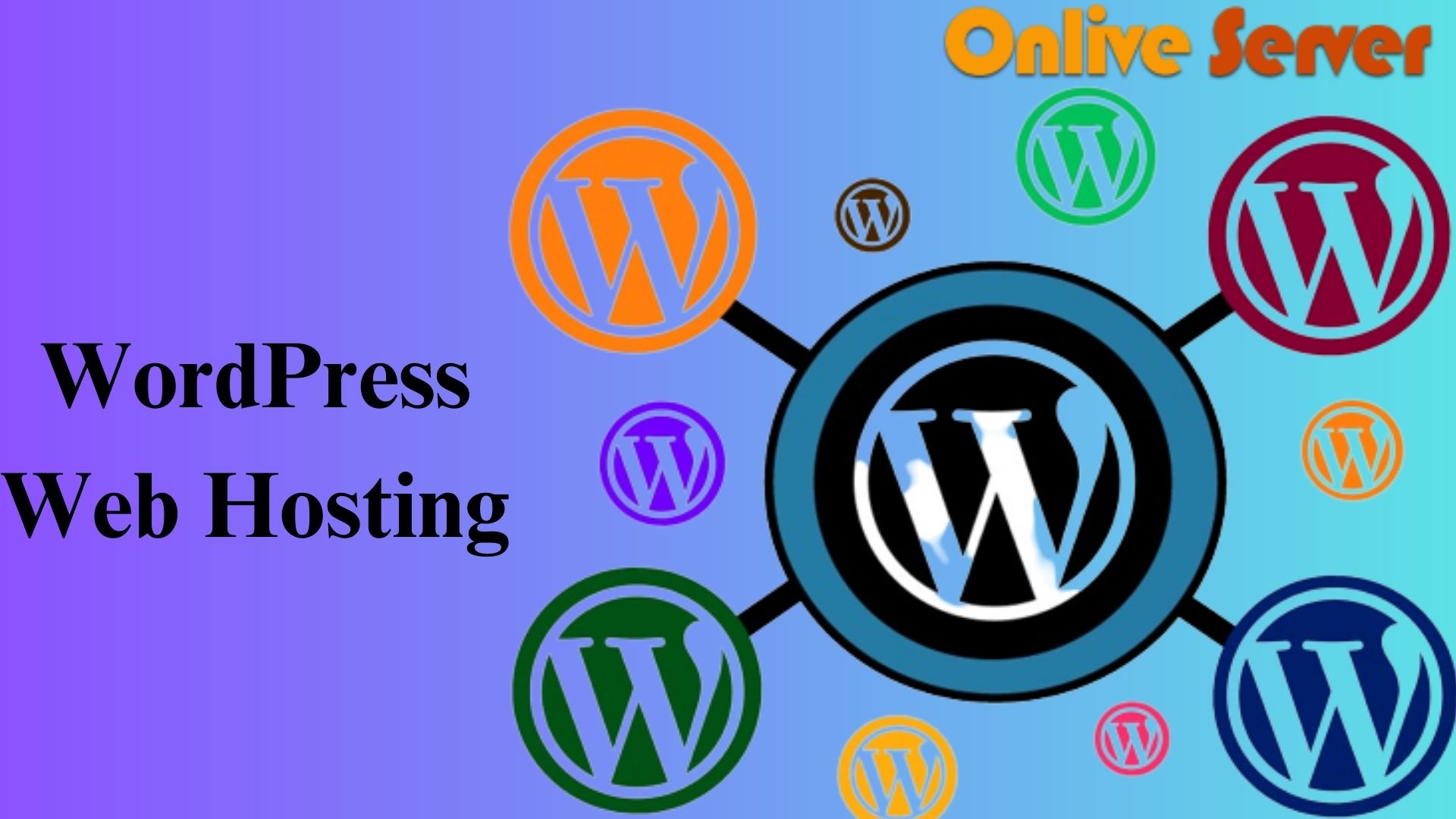Introduction
For individuals who are acquainted with the world of digital the surroundings, choosing a web host could prove an uphill battle. A trustworthy web hosting service is essential for your WordPress website’s best performance whether you’re starting a blog, establishing an online store, or creating a digital portfolio. The top WordPress web hosting services provided by Onlive Server will be assisted you select in this article. It’s time to look into this technological topic deeply to a human approach.
Understanding Web Hosting
Before we move forward, it’s essential to grasp the concept of web hosting. Imagine your website as a house. The physical structure (the files and data) needs a plot of land to sit on. This virtual ‘plot of land’ is what we call a web host.
The Importance of Choosing the Right Web Hosting
The success of your website is significantly affected by your choice of web hosting provider. Your website might encounter frequent downtime if the hosting company you use is unsteady. This could result in lower traffic and even income loss. On the other hand, a dependable host guarantees that your online presence is always accessible and operates with a hitch, this enhances user experience and improves conversion rates.
Why Onlive Server?
WordPress-friendly hosting alternates are accessible from Onlive Server, which also offers high-performance, secure hosting at low prices. You connect with a trusted staff that places a high priority on the expansion and success of your website if you select as your web hosting provider.
When selecting a this web hosting service, consider the following factors:
Performance
The performance of the server is one of the important things to take into consideration. This pertains to the server’s speed and reliability when hosting your website. It offers dependable servers which ensure fast load times and less downtime.
Security
Security of your website is of the utmost importance. It provides state-of-the-art security features like DDoS protection, firewalls, and regular security updates to safeguard your website from any kind of attack.
Customer Support
If something goes wrong with your site, you need to be able to rely on prompt and helpful customer support. It prides itself on its exceptional customer service, offering 24/7 support to help you resolve any issues quickly.
Pricing
While you want the best features for your WordPress hosting, your budget is an essential factor to consider. It offers flexible plans that cater to different needs and budgets.
Scalability
Your website’s requirements may grow over time, and your hosting plan should be able to accommodate this growth. It offers scalable solutions, allowing you to upgrade your plan as your website expands.
Making the Right Choice with Onlive Server
Understanding the distinctive demands of your website while contrasting them to what It has to offer will help you make the best decision. Take in that the lowest plan could not offer the features that your website needs, and the most costly plan isn’t always the best for you. The best WordPress web hosting supplier needs an accurate compromise between price and features.
Conclusion
With a plethora of hosting options available, selecting the right one for your WordPress website can seem overwhelming. However, by understanding the key features to look for and how they match up to your needs, you can make an informed decision. It stands out as a top choice, offering high-performance, secure, and reliable WordPress web hosting services at competitive prices.
FAQs About Choosing WordPress Web Hosting
1.Qus- What is WordPress web hosting?
Ans- WordPress web hosting refers to web hosting services optimized for WordPress, a popular content management system (CMS). These services ensure smooth WordPress performance.
2.Qus- Why should I choose Onlive Server for my WordPress website?
Ans- It offers high-performance, secure, and scalable hosting solutions optimized for WordPress at competitive prices. They also provide excellent customer support.
3.Qus- How does the performance of a web host impact my site?
Ans- The performance of your web host directly affects your site’s speed, reliability, and user experience. A high-performance host like it ensures fast loading times and minimal downtime.
4.Qus- How does this provider ensure the security of my WordPress website?
Ans- This prioritizes security by implementing features such as DDoS protection, firewalls, and regular security updates to keep your website safe from threats.
5.Qus- What support does this offer in case I face issues with my site?
Ans-It offers 24/7 customer support, ready to help you resolve any issues that arise with your site promptly and efficiently.

